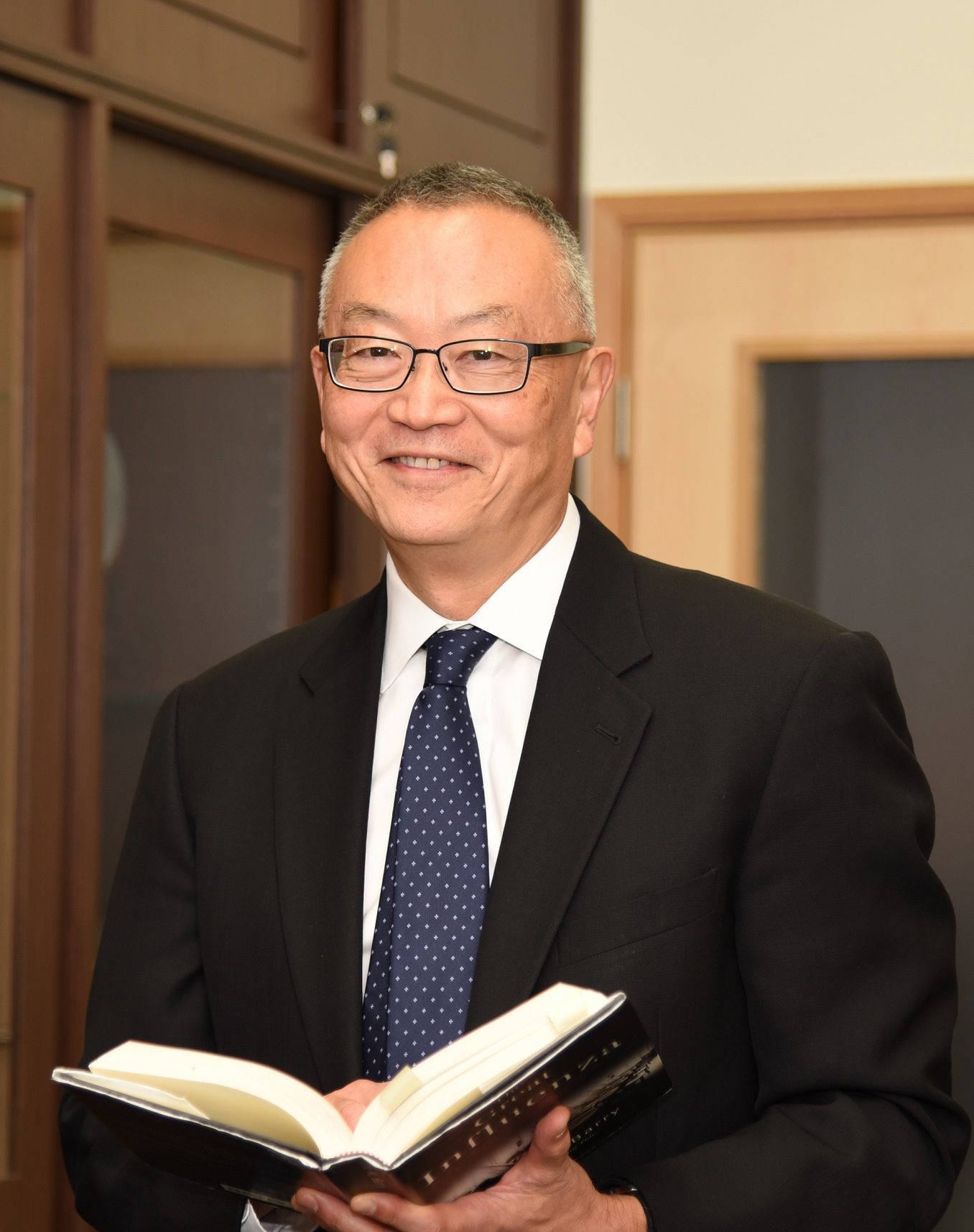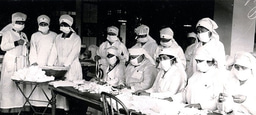Centenary of 1918 Influenza Pandemic | Snapshot: Keiji Fukuda
Published in Microbiology

Name: Keiji Fukuda
Affiliation: Director and Clinical Professor
School of Health of the University of Hong Kong
Hong Kong, China
Email: kfukuda@hku.hk
Website: http://sph.hku.hk/en/about-us/faculty-and-staff/academic-staff/fukuda,-keiji

Could you tell me a bit about what your research entails?
My work on influenza and other emerging diseases has focused more on public health aspects rather than research per se. For example, I have spent much time on outbreak investigations of emerging infectious diseases (such as influenza A (H5N1) in Hong Kong, Vietnam, Egypt; H7N9 in China; SARS in China, MERS in the Middle East and Republic of Korea; and Ebola in West Africa); national and global influenza surveillance systems and vaccination policy; pandemic preparedness; international negotiations (such as development of the Pandemic Influenza Preparedness Framework and the United Nations High Level Meeting on Antimicrobial Resistance) and implementation of the International Health Regulations. I also was the primary technical lead, and main communications spokesperson, at WHO for the 2009 H1N1 pandemic. My research has included developing a new approach to combining epidemiological and laboratory data to refine national influenza surveillance, conducting epidemiological studies such risk factors for H5N1, developing a working definition of chronic fatigue syndrome and a study the etiology of multi-symptomatic conditions in Persian Gulf War veterans.
How did you become interested in influenza research?
I first entered the influenza field because Nancy Cox at the US CDC approached me about running the Epidemiology Section in the Influenza Branch. At the time, I was working primarily on chronic fatigue syndrome. After much deliberation, I decided to focus on influenza because it raised new challenges for me, such as vaccination and surveillance. That was in 1996. In 1997, H5N1 emerged in Hong Kong, and I led the two CDC field teams that went there to assist the Department of Health, which was under Margaret Chan. After that, and also the emergence of SARS, the fields of influenza and emerging infectious diseases changed significantly and my career went deeply in various aspects of how the world can deal with health security related concerns.
In what ways has the 1918 pandemic most influenced your research, and the wider virology and public health field?
In the field of infectious diseases, the 1918 pandemic has always been an ultimate reminder that what can, in fact, take place. The sheer number of deaths is numbing. But what has always struck me even more is the ability of people to somehow largely forget that such an event ever occurred. Perhaps we adopt a collective forgetfulness to escape some of the terrible events of the past, but as George Santayana said, those who fail to learn from the mistakes of their predecessors are destined to repeat them. The human tendency to forget or ignore terrible events seems deeply ingrained and, depending on the day, I go back and forth as to whether we – the large human we – can remember, learn and change. But the fact that we cannot let up on this effort to be better prepared for me is the fundamental lesson from 1918.
What do you see as the biggest accomplishments/breakthroughs in the field since the 1918 pandemic? Are there any papers that you feel are must reads for those that aren’t familiar with the field (and briefly, why)?
Worldwide, I regard the improvements in the public health systems related to emerging infectious diseases in China following SARS, and the development and implementation of the International Health Regulations and the Pandemic Influenza Preparedness Framework to be big causes for hope. I know from first-hand experience that doing the right thing is often a matter of how to do it. As for books, The Great Influenza by John M. Barry is an important and sobering read.
What do you see as the main challenges for research in your part of the field in the coming years.
Two main challenges. (1) Building or strengthening national systems – including health, agriculture, communications, finances, and decision-making – such that we always have the capacities in place to deal with any infectious disease or other health event; and (2) reaching a workable consensus on how the world will share, fairly distribute and wisely use resources such as genetic data, vaccines, medicines, technology. They are the prize.
Follow the Topic
-
Nature Microbiology

An online-only monthly journal interested in all aspects of microorganisms, be it their evolution, physiology and cell biology; their interactions with each other, with a host or with an environment; or their societal significance.
Related Collections
With Collections, you can get published faster and increase your visibility.
The Clinical Microbiome
Publishing Model: Hybrid
Deadline: Mar 11, 2026


Please sign in or register for FREE
If you are a registered user on Research Communities by Springer Nature, please sign in